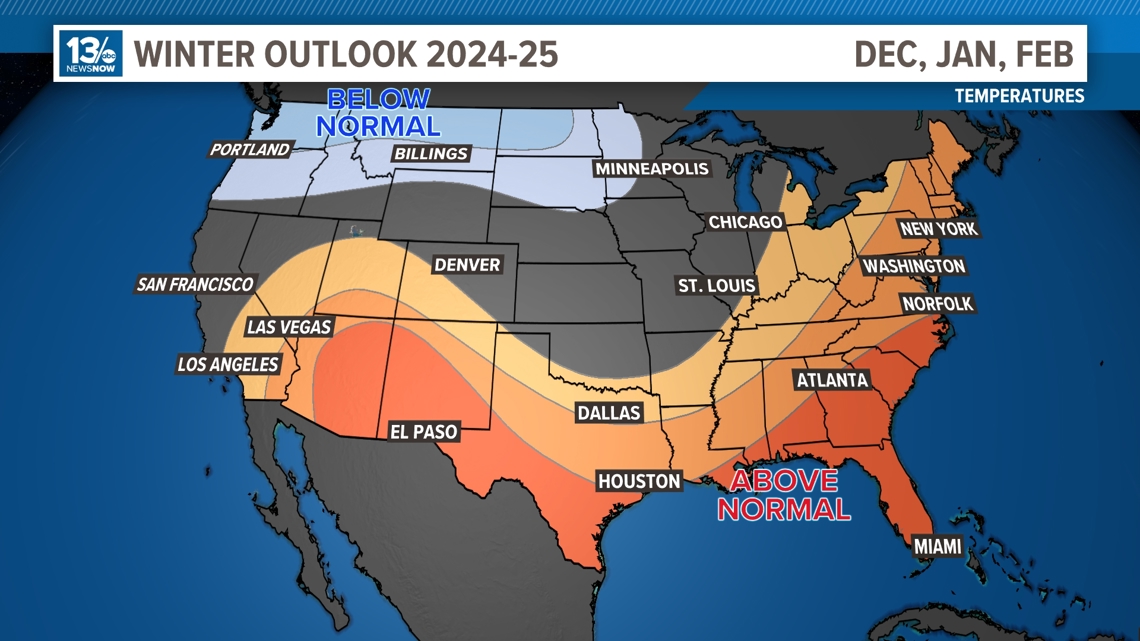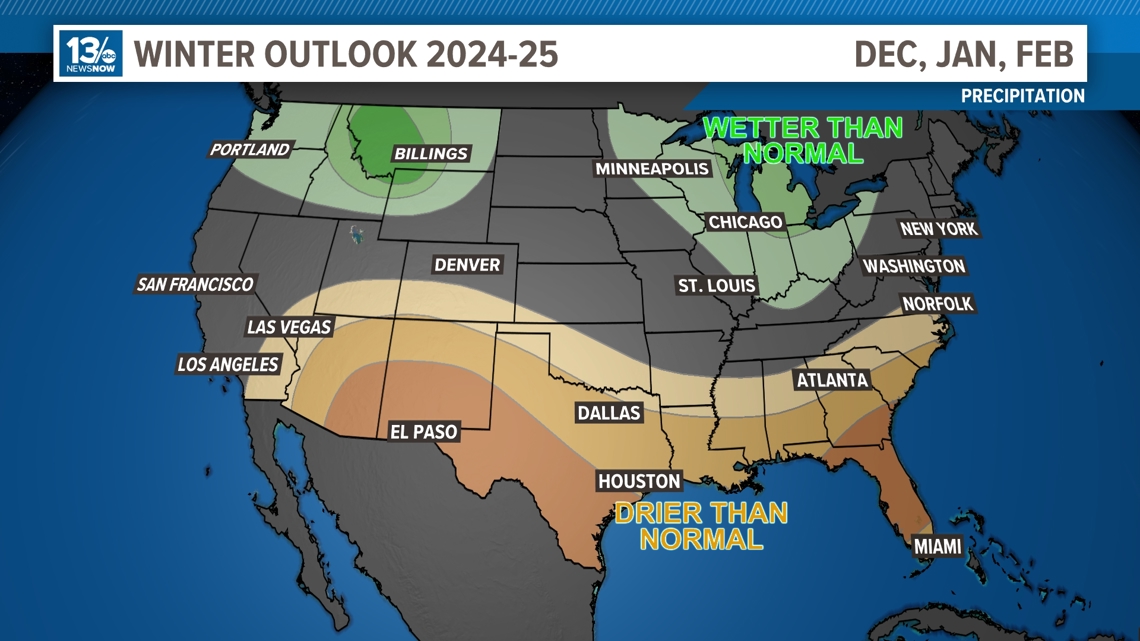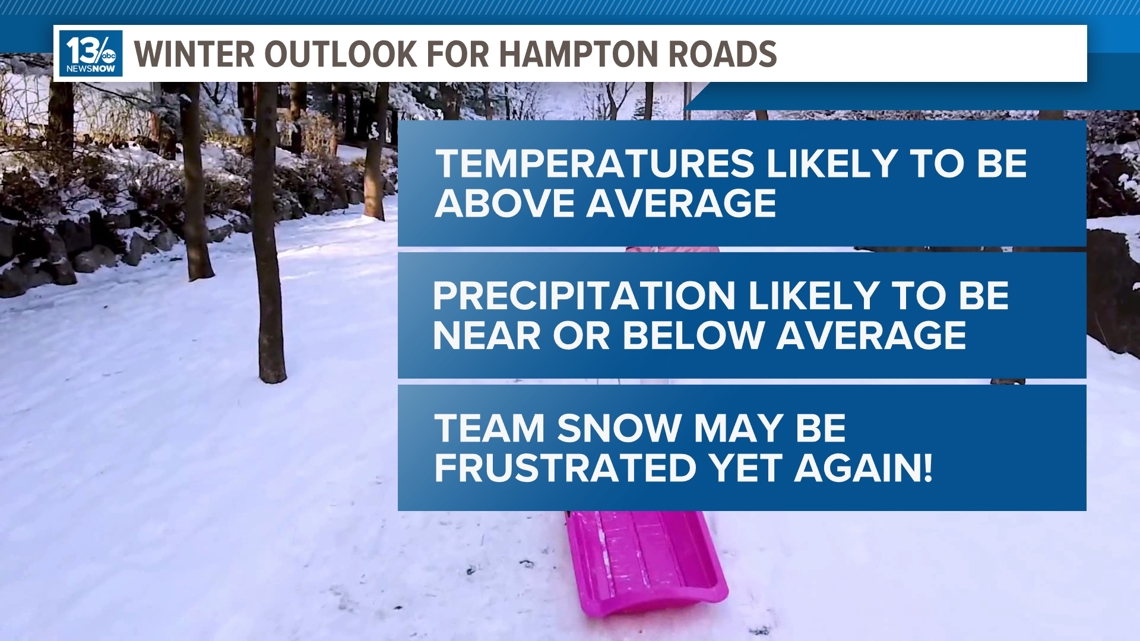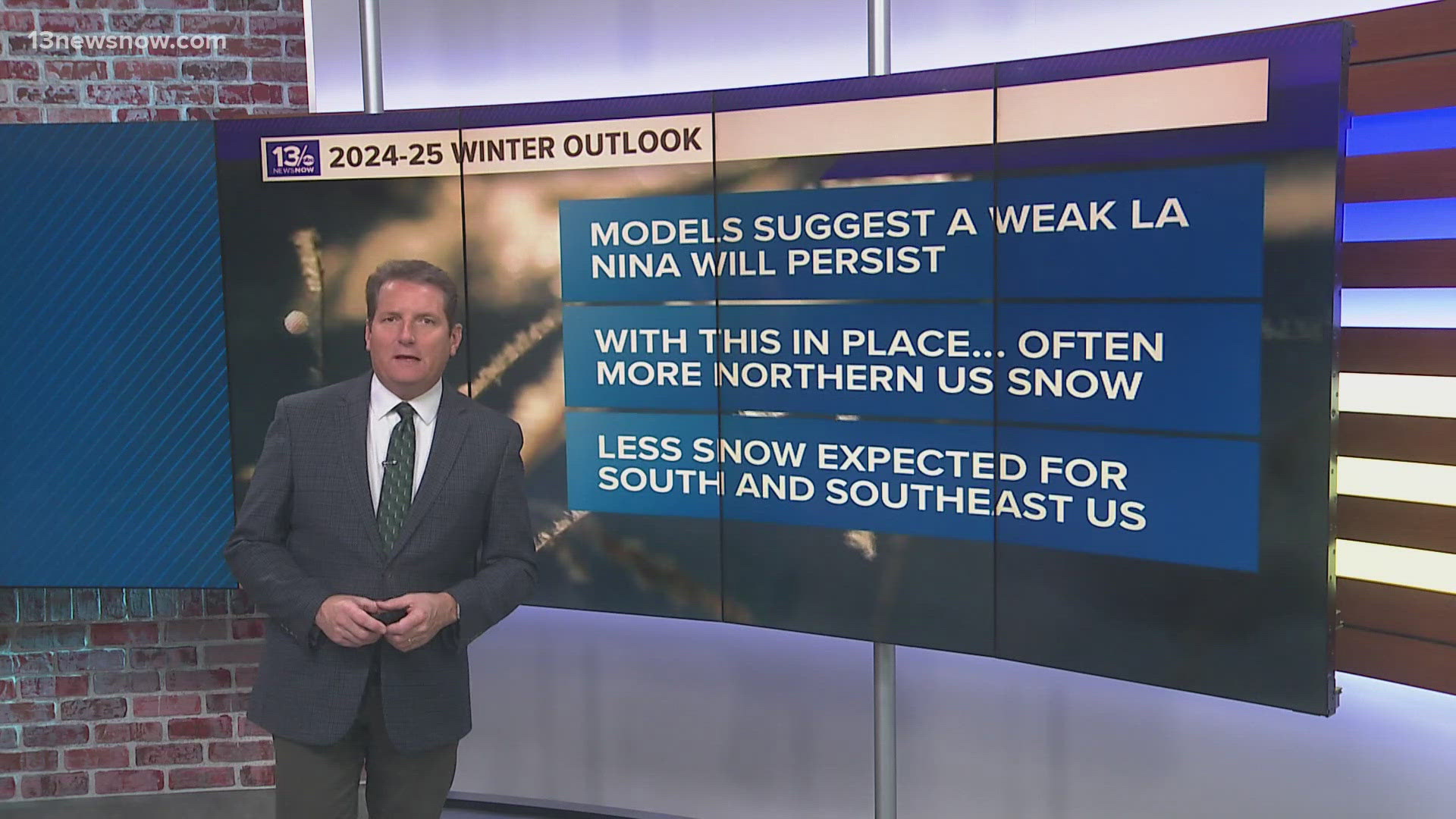Meteorological Winter starts Sunday the first of December. For the 2024-25 winter season, we are already seeing some early indications of what is likely to happen.
There is a good chance that a weak La Niña weather pattern will persist through the winter months and possibly into early spring.
A weak La Niña refers to the phase of the El Niño-Southern Oscillation (ENSO) where sea surface temperatures in the central and eastern Pacific Ocean are cooler than average, but not as extreme as in a strong La Niña event. This climatic phenomenon influences global weather patterns, including the winter weather across the United States.
In a typical weak La Niña winter, the northern U.S. and parts of the West tend to experience colder and wetter-than-average conditions. The Pacific jet stream, which typically brings moisture and storms to the West Coast, is shifted northward, causing increased snowfall in the Pacific Northwest and the northern Rockies. Additionally, the northern Great Plains and the Upper Midwest often see colder temperatures, leading to more frequent snowstorms and chilly conditions.
In contrast, the southern U.S. often faces drier and warmer conditions. The jet stream tends to stay farther north, leaving much of the South with less rainfall and higher-than-normal temperatures contributing to reduced winter precipitation in places like California, Texas, and Florida.
Overall, a weak La Niña can result in a winter with a mix of snowy conditions in the northern U.S. and dry, warmer weather in the southern regions. However, the exact impacts can vary from year to year, as other atmospheric factors also play a role in shaping winter weather patterns.
Based on the current outlooks from NOAA's Climate Prediction Center, Hampton Roads is likely to experience above-average temperatures this upcoming winter, and near or below-average precipitation.




That combination does not promote much hope for snow lovers in southeast Virginia and northeast North Carolina. But remember, these are averaged conditions expected over December, January and February. There can be isolated weather systems that are capable of bringing dramatically different conditions, so stay tuned for weather updates from the 13News Now weather team as needed through the upcoming winter!



